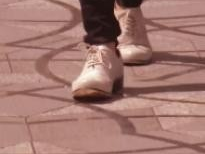Shu En

(Audio or text only clips) Shu En has combination skin and developed moderate acne. She was given a course of Roaccutane (isotretinoin) by her dermatologist in Singapore. The tablets helped a great deal and she now uses a topical lotion containing isotretinoin to manage her skin.
Shu En is 19 years old and a university undergraduate student. She is single and lives in Singapore with her parents outside of term time. Her ethnicity is Chinese.
More about me...
Shu En first developed acne around the age of 9. She has also had eczema since she was a child. Although both of these skin conditions are now mostly under control, she has found it difficult to care for the two extremes whereby some parts of her skin are oily and other areas are very dry. Her acne affects only her face but she finds that her hair tends to also be quite greasy, suggesting that both may be caused by overproduction of the oil glands. Roaccutance (isotretinoin) tablets made her dry skin drier, but it did clear up her acne well and made her hair less oily. This latter outcome was appreciated because Shu En thinks that the oiliness of her hair causes it to fall out more than usual.
For the first few months, Shu En tried to ignore her acne. She saw it as “a teenage thing” that would go away. She now thinks it’s important to treat it instead, especially to avoid scarring from cystic acne. Shu En used some shop-bought creams which worked well in the short term but were not sustained. She then went to see her doctor and was prescribed antibiotics. She took these for about a year but didn’t take the medicine very seriously at the time, so her acne became worse. Shu En went to a private dermatologist in her home country of Singapore with the encouragement and financial support of her mother. Both of Shu En’s parents had acne when they were younger and she thinks this may be one of the reasons why they were so supportive of her seeking medical treatment. Shu En isn’t keen on her dermatologist’s “business-like approach” or that the appointments are so short, but she found that the course of Roaccutane (isotretinoin) worked well. She continues to use a topical isotretinoin cream as well as the dermatologist’s own brand of anti-scarring skin care products. Shu En looked online for more information about acne; she found that the scientific cross-section images of the skin and oil glands were helpful but that the photos of others’ skins were “scary”.
Shu En finds that being stressed exacerbates her acne but that also acne causes her stress and social discomfort. She thinks that one factor in this is that she takes less care of her skin at stressful times. One example of this is around the exam period but Shu En also finds that everyday tasks involved in living can cause “accumulated stress”. In addition to worsened acne when she is stressed, her hair colour changes from black to white. Shu En finds that the climate makes a different to her skin too: the colder climate of the UK means that her acne tends to go away. She has different skin care products and daily routines for the different climate when she’s back home in Singapore.
There have been some times when Shu En has felt that she can’t go out or socialise because of her acne. She doesn’t consider using make-up to be a solution either, as she says that this makes acne worse as does drinking alcohol. Having spots has contributed to Shu En having low self-esteem when she was younger; although other people have never said anything negative directly to her about it, she could sense their reactions to her acne. She used her hair to cover her face when she didn’t feel very presentable, but found that this made her acne worse as her hair could spread oil or bacteria on her facial skin. Shu En now feels more confident and comfortable wearing make-up now that her skin is clearer. Her advice to other young people with acne would be to see a doctor as soon as possible for treatment.
Shu En describes how she understands isotretinoin to work.
Shu En describes how she understands isotretinoin to work.
Shu En talks about the link between isotretinoin and birth defects.
Shu En talks about the link between isotretinoin and birth defects.
So how old would you have been when you were on Roaccutane?
Like 16. Yeah.
And did your doctor talk to you about those risks?
Yeah.
When she was younger Shu En used to wear her hair down to cover her spots but thinks that made the acne worse.
When she was younger Shu En used to wear her hair down to cover her spots but thinks that made the acne worse.
So has that meant that you’ve changed your hairstyle?
Yeah, like when I was a teenager and back when I had bad acne, I used to have hair that practically covered my face. And I think I was also partially because of that cos you don’t feel comfortable with yourself. Yeah, but it’s fine now.
That’s a bit of a ‘catch 22’, isn’t it. If you want to cover it but it’s making it…
It’s making it worse, yeah.


